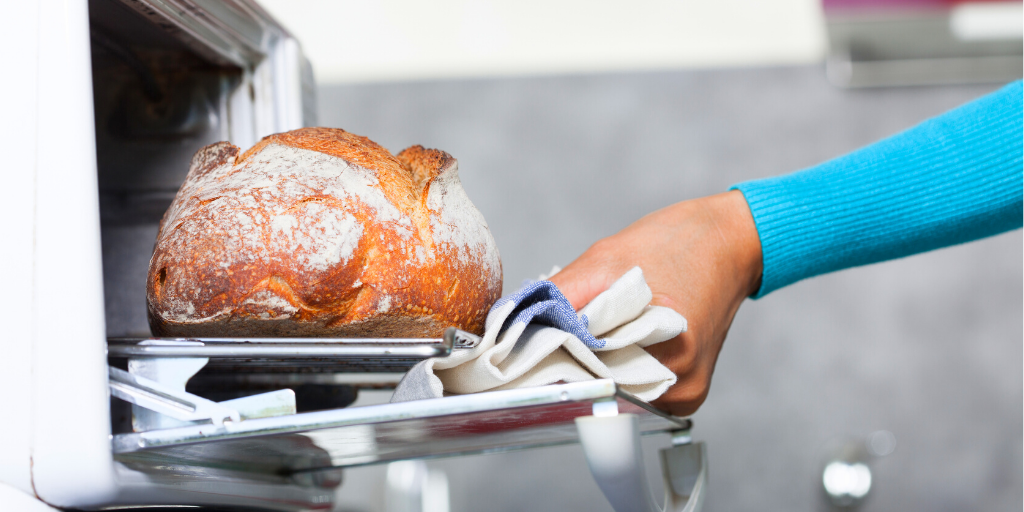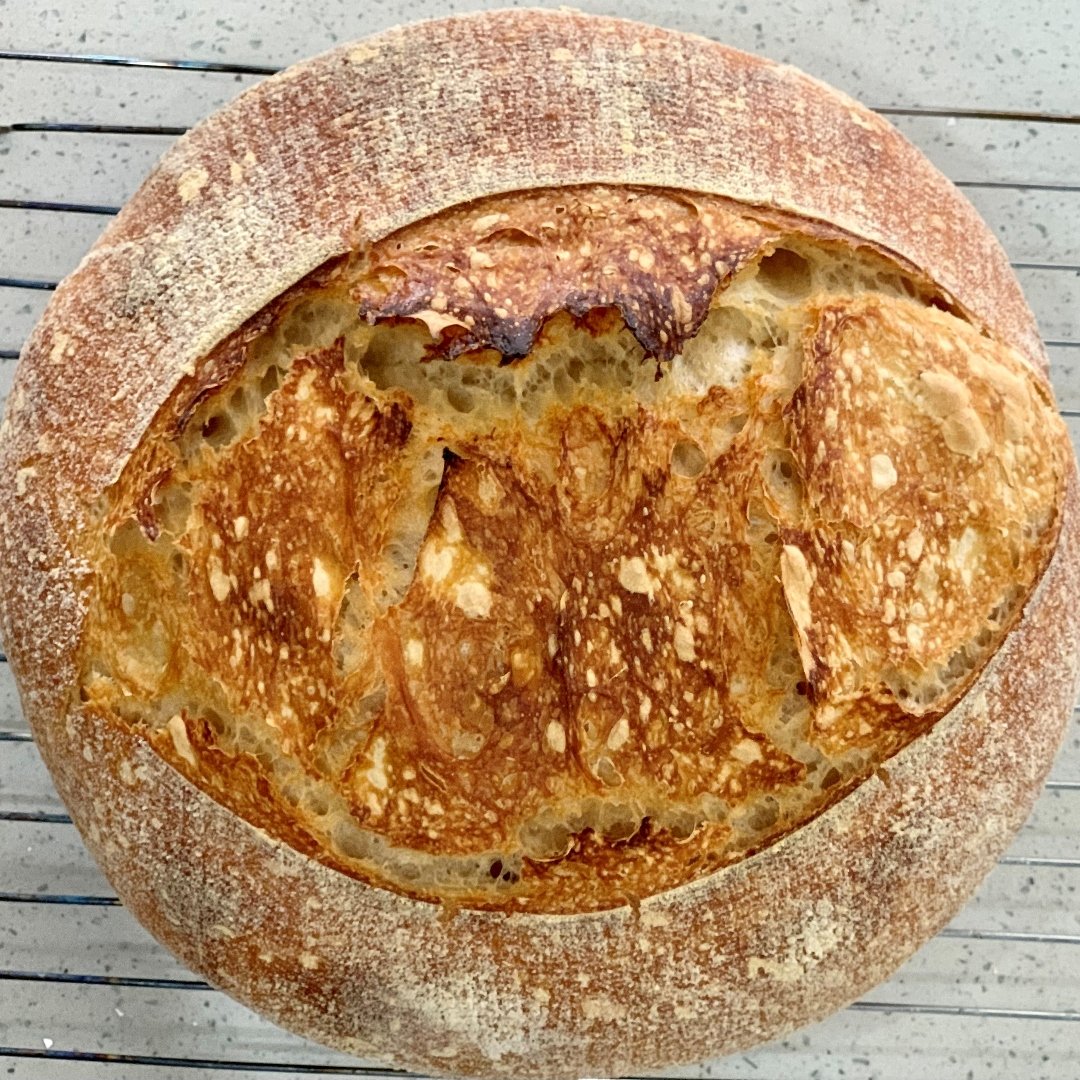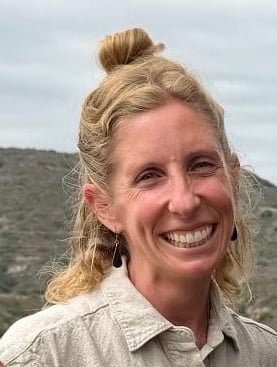
Caitlan Rangel sees the Kingdom of God in the baking, eating, and sharing of sourdough bread.
When I baked my first loaf of bread, I was convinced I’d never bake another. As a cook, but not a baker, I thought estimations would be just fine as I scooped about the right amount of flour and added approximately the directed amount of yeast. Any semi-experienced baker would not have been surprised that my dough didn't rise and felt dense as a brick. My husband sweetly spread butter on this not-bread and ate a slice with dinner. Disappointed, I tossed it into the trash can with a loud thump.
Years later, in the midst of a pandemic, children running around, and a desire for something life-giving, I thought I’d give bread a try again—this time with sourdough. In my motherhood, I’ve grown to love working with living things (including the little people I call my children) and providing my family with nutritionally rich foods. Both my mother-in-law and grandfather are incredible sourdough bakers and with their encouragement, I made my first starter.
I mixed flour and water together in a large mason jar and set it on the counter. I fed it each day and in not too long, bubbles appeared on the surface. My mind was blown—how could wild yeast and bacteria, both of which I could not see, help this flour and water come to life?! I’ve continued to feed this starter—water, flour, fresh air—to keep it alive. (My husband jokes that this starter, now over two years old, is our fourth child.) It has produced many loaves of bread, English muffins, pancakes, cookies, and more. And in the experience of sourdough, I see something of the Kingdom of God.

Sourdough reminds me of the kingdom—of life with God—because it is true food. It nourishes our bodies at a deep level. The wild yeast and bacteria in the starter break down the flour in such a way that the bread is easier for our bodies to digest. The nutrition in the bread becomes more available for our bodies to absorb. Plus, the bacteria in the starter is great for our guts, which is a big deal since 70% of our immune system is housed in our guts.
Because of the fermented quality of sourdough, even those who have sensitivity to gluten (excluding Celiac disease) can often enjoy it. It has been a gift to make sourdough for my friends and family with gluten sensitivity and see them enjoy bread without negative side effects. The goodness of a crusty, fluffy, chewy piece of sourdough bread with a smear of butter is without words.
Sourdough also summons the Kingdom of God because of its virtue-making qualities. Creating a loaf of sourdough is not a quick process. It requires feeding the starter, waiting for the starter to rise, crafting dough with the fed starter, waiting for the dough to rise, shaping the dough, waiting for the dough to rise, baking the dough, and waiting to slice until it has cooled. This process cultivates patience and self-control. It is a slow food in a world that loves to be immediately gratified.
Finally, sourdough bread cultivates the Kingdom of God because of the community it creates. When friends have shown interest in baking sourdough, I’ve given some of my starter to them and they in turn have given some of their starter to others. There’s a joy to sharing starter, to making a loaf of bread for another person, and to sharing bread around the table. The bread nourishes not only our bodies, but also the primal desire for community written into our beings.
If you are a baker of sourdough products, perhaps you’ve glimpsed God in them as I have. If you are someone who thinks they could never be a baker (like I did when I tossed my brick of bread into the bin), perhaps you’ll reconsider. The kingdom of God is here with us—as close as the starter bubbling away on the counter.

Copyright 2022 Caitlan Rangel
Images: (top) Canva; all others copyright 2022 Caitlan Rangel, all rights reserved.
About the Author

Caitlan Rangel
Caitlan Rangel likes making bread and books. She is a wife and homeschooling mom, and the author of the children’s picture book, The Restless Grain: A Tale of Hope. Caitlan holds a B.A. in Theology and Master of Divinity from the University of Notre Dame. She lives in Southern California on the canyon where she grew up. Connect with Caitlan on Instagram @restandrise.caitlanrangel, her website at CaitlanRangel.com, and Substack.


.png?width=1806&height=731&name=CatholicMom_hcfm_logo1_pos_871c_2728c%20(002).png)
Comments